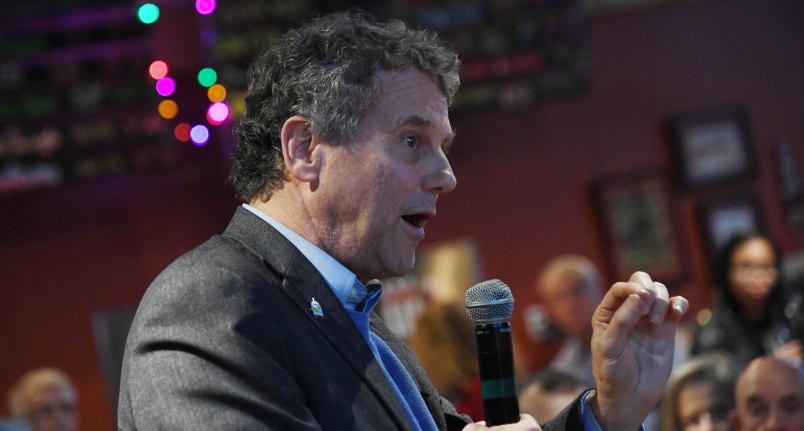Sen. Sherrod Brown (D-OH) won’t run for president after all, he announced Thursday.
“Being president isn’t something I have dreamed of my whole life or even for years,” Brown said in a statement. “My goal for our tour is to make the dignity of work the centerpiece of the Democrats’ 2020 campaign because I believe that’s the way to beat Donald Trump.”
The move comes as a surprise — Brown had built out a campaign team and had been touring early-voting states on his “Dignity of Work” tour in recent weeks. But he’d failed to gain much traction in the race so far, polling in the low single digits in most public polls.
Brown’s decision against a run removes an intriguing candidate from the field — albeit one who’s not very well-known outside of his home state.
Brown, a fierce populist, won reelection in Ohio last fall even as every other Democratic statewide candidate fell far short, and has a proven track record of winning white working-class voters and carrying a Midwestern state that has moved hard towards the GOP in recent years. He’d done so while developing a consistently progressive record in Congress on both economic and social issues over three decades, standing as an early supporter of gay marriage and opponent of the war in Iraq while battling free trade agreements like NAFTA that have grown increasingly unpopular across the ideological spectrum.
A number of Republicans had privately told TPM that Brown was the candidate they most feared facing as a nominee.
But Brown was facing a tough route to the nomination — with other top-tier candidates pulling the types of voters he’d need to win. Sen. Bernie Sanders (I-VT) has strong appeal with populist-minded economic liberals, while former Vice President Joe Biden, who’s expected to announce a presidential campaign in the coming weeks, has strong name recognition and popularity with white working-class voters.










